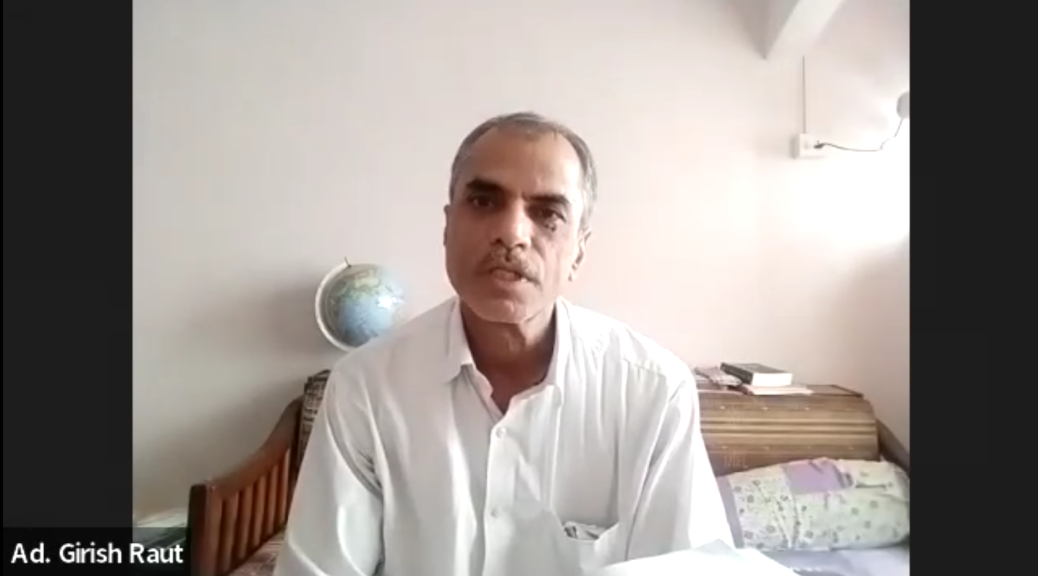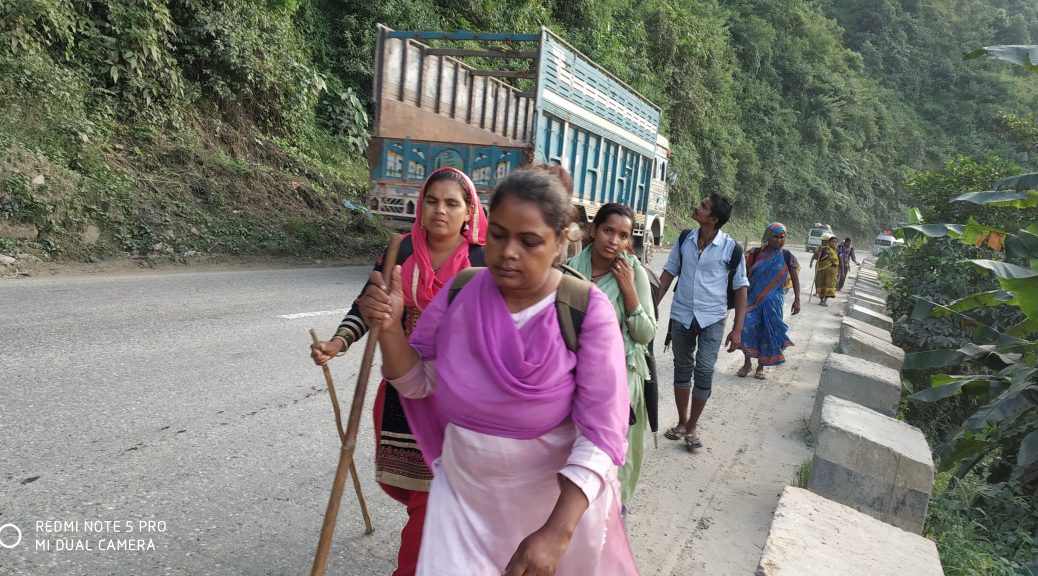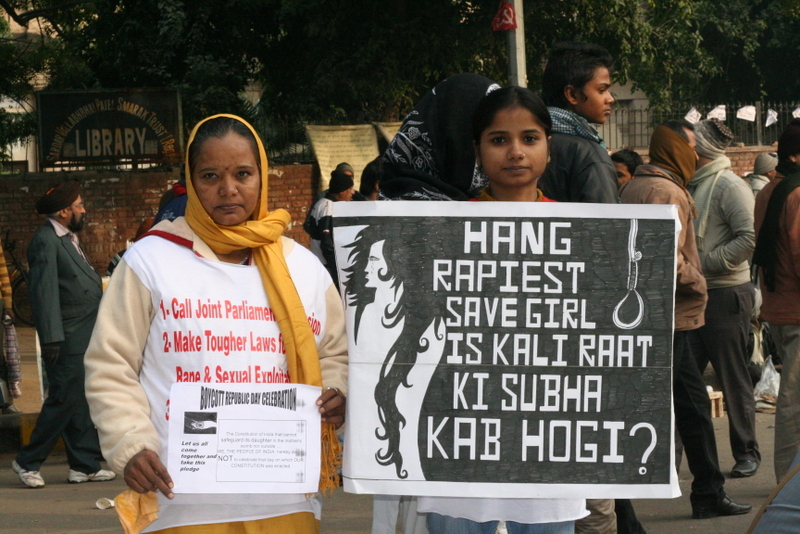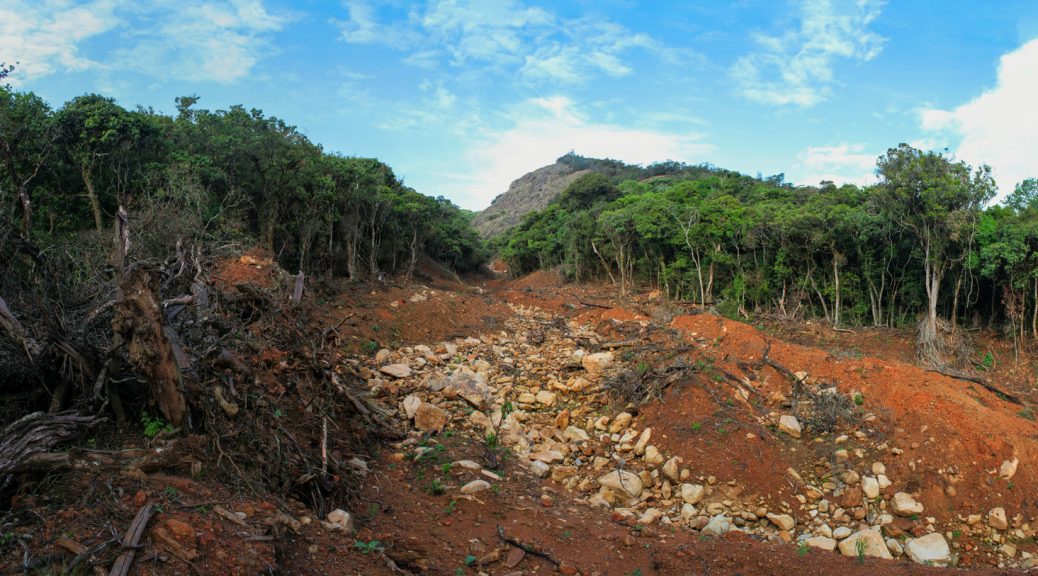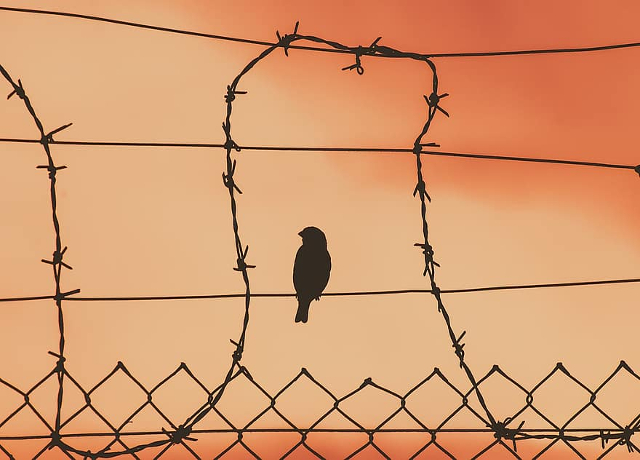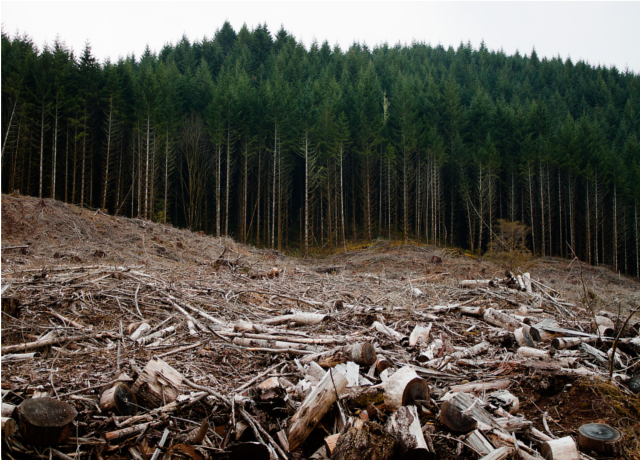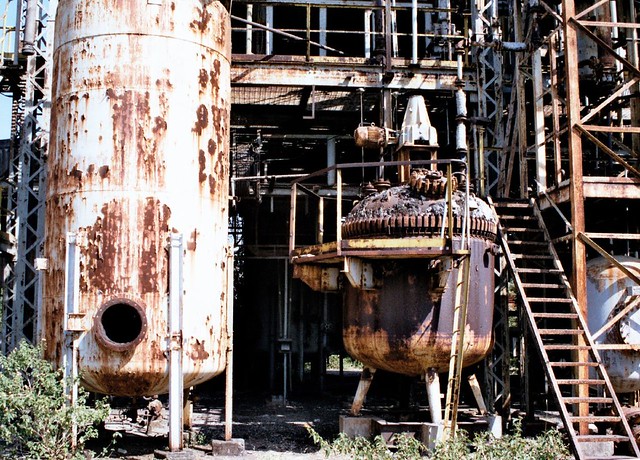In this interview, Adv. Girish Raut talks about his journey as an activist. He emphasises on the harms of the industrial system and of the growth-based economic system. The industrial system needs to be stopped. It requires all of us coming to terms with the unsustainability of the numerous benefits we are repeaning of the industrial system. He talks about the necessity to respect all life forms on Earth.
Continue reading The industrial civilization should be stopped NOW!!
Category Archives: 1. The Problem: Civilization
Rural Nepali Women March 520km to Protest Violence and Sexual Abuse
Editor’s note: In Nepal, as in many parts of the world, male violence against women is relatively common, yet often goes unreported and unpunished. Today we bring you an interview with Ruby Khan, a working-class Nepali woman who marched 520km (320 miles) and helped launch a grassroots uprising for concrete policy and cultural change in response to two incidents of violence against Nepali women.
As an eco-feminist organization, Deep Green Resistance recognizes the links between the destruction of the planet and the oppression of women. Not least importantly, when women have greater autonomy and control over their lives, they chose to have fewer children, on average. Therefore, the liberation of women is not only the right path to justice, it is a necessity for reversing population growth and defending the living planet.
More broadly, the same philosophical roots underpin both patriarchy and the destruction of the planet, which creates the potential for synergistic positive effects when addressing these issues.
This interview, conducted by DGR organizer Salonika in Nepal, gives us a fascinating glimpse into the discipline, sacrifice, and hard work that goes into grassroots organizing. Continue reading Rural Nepali Women March 520km to Protest Violence and Sexual Abuse
Suspension Of Farm Laws In India
This news article describes the impact of corrupt legislation on ordinary working people. The organised protests and solidarity of the public with farmers is an excellent example of how coordinated resistance can enable change.
Editor’s note: DGR strongly opposes the three new farm laws that have inspired the farmer’s protests in India. However, we do not necessarily agree with all of the demands of the protestors. Continue reading Suspension Of Farm Laws In India
Victim of Gang Rape Succumbs to Injury
On 14th Sepetember 2020, an adolescent woman was brutally gang raped in India. This article examines the gender- and caste-based hiearchies, and how it has affected the case.
Peril In The Hills: Extreme Weather A Danger For Nilgiri Ecosystem
Godwin Vasanth Bosco reports on extreme precipitation that has fallen on the Nilgiri plateau of southern India the last few years. These extreme and unprecedented rain events have led to massive landslides and other ecological damage. Little has been done to address the crisis.
Featured image: A massive landslide in one of the largest sholas in the Avalanche region of the Nilgiris, with hundreds of native trees and the stream ecology washed away. Continue reading Peril In The Hills: Extreme Weather A Danger For Nilgiri Ecosystem
The Impact of ‘Civilization’ on Endemic Communities.
In this piece, Suresh discusses the impact of civilization on endemic communities and their right to live in isolation. Suresh tells us how these indigenous people have had their land, rights and identities stripped by encroaching industrial civilization. Continue reading The Impact of ‘Civilization’ on Endemic Communities.
Women’s Role In Environment Conservation
On August 8th, DGR Asia-Pacific conducted a discussion on Women’s Role in Environment Conservation. Women activists and organizers from Nepal and the Philippines participated in the discussion. Continue reading Women’s Role In Environment Conservation
Are Indigenous People Backwards?
Are indigenous people backwards? Do they really need to be ‘rescued’ from their primitive way of life and introduced to this wonder of human civilization? Or is this a racist simplification?
In this piece Chris challenges the notion that civilization is the ultimate way of life — a notion that has been used to justify genocide against indigenous people for a long time.
Continue reading Are Indigenous People Backwards?
Caste-based violence in Nepal
Caste-based discrimination and caste-based violence has been prevalent in the Nepalese society for a long time. Though both have been legally abolished, incidents like the ones described below show that they are not yet dead. Continue reading Caste-based violence in Nepal
कोरोना संक्रमण पश्चात निजगढ वनविनाश पुनर्विचार गर्ने की?
बाराको निजगढ वनबाट २४ लाख रूख कटानी गरी निजगढ विमानस्थल बनाउने प्रस्तावना छ। यस क्षेत्रकै सबैभन्दा जैविक विविधताले सुसज्जित क्षेत्र हो। पर्यावरणीय र आर्थिक दुबै पाटोले कमजोर परियोजनामा अब जनस्वास्थ्यको पाटो पनि आवश्यक रहेको छ।
Continue reading कोरोना संक्रमण पश्चात निजगढ वनविनाश पुनर्विचार गर्ने की?
Vishakhapatnam Gas Leak: Who do We Hold Accountable?
This culture prioritizes economic gains over human and natural welfare. The series of toxic accidents in India (of which the Vishakhapatnam gas leak is only a near example) lay testimony to this fact. In such a culture, is it possible to hold the responsible actors accountable for their actions? Continue reading Vishakhapatnam Gas Leak: Who do We Hold Accountable?
Murder of Dilip Kumar Mahato
On January 10th, 2020, Dilip Kumar Mahato (Om Prakash Mahat) was killed with an iron rod, and his body was crushed by a tipper to give the appearance of an accident. Dilip had gone to protest an illegal mining operation from the river near his house in Dhanusha. Dilip had been protesting against this operation since it started 2 years ago. Continue reading Murder of Dilip Kumar Mahato
Coal Plant Accident Kills Six in India
What is electric power worth? The coal power industry is responsible for an incredible amount of suffering and death via air, soil, water pollution and land destruction. This is not to mention the gathering climate crisis apocalypse. This piece discusses the cost of coal.
